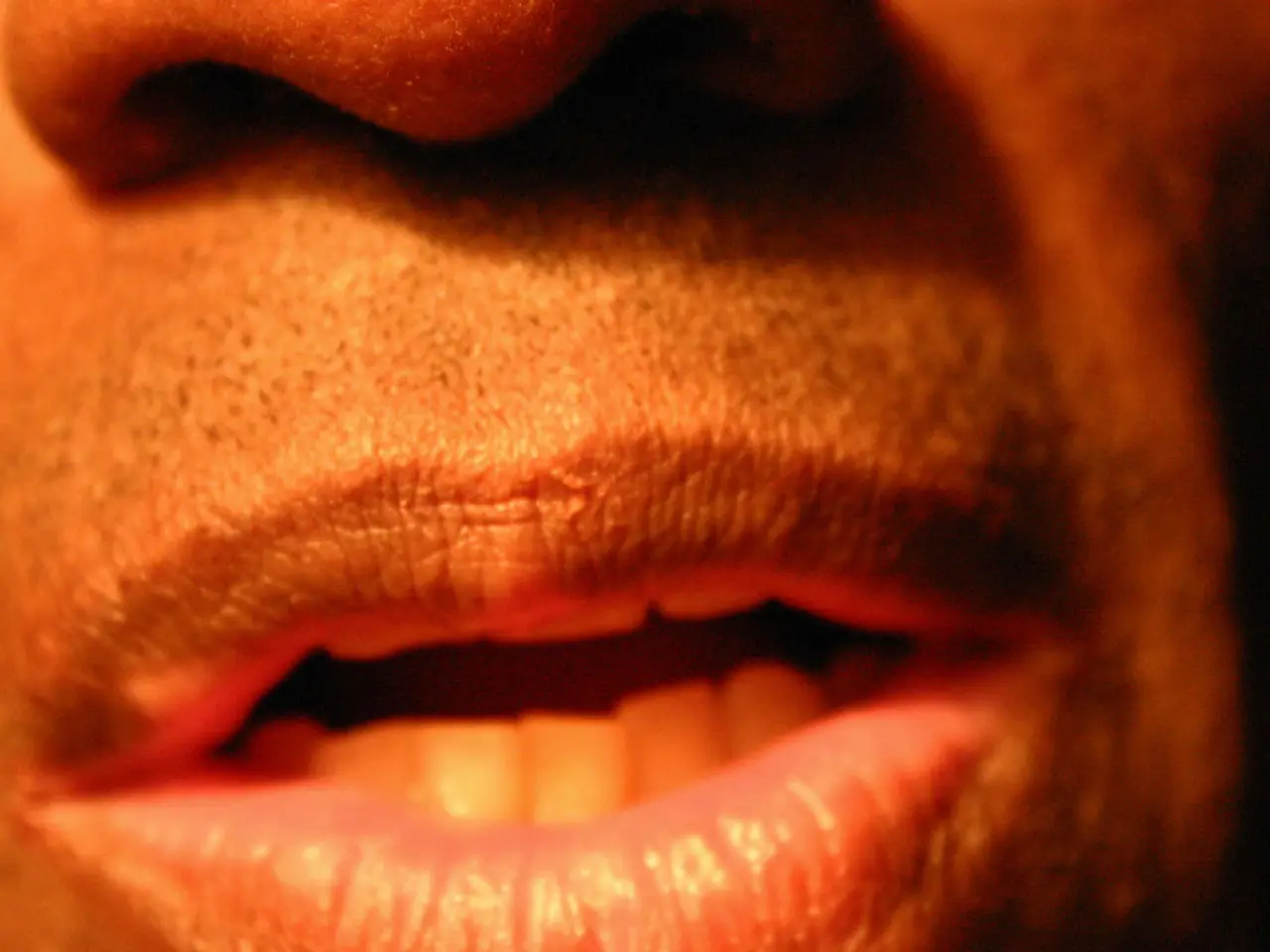Breathing through the nose versus the mouth: Insights to consider
A growing body of research suggests that nasal breathing offers numerous health benefits compared to mouth breathing, particularly in the long term.
A recent study found enhancements in brain activity when participants were nose breathing [1]. This is due to the nose's role in filtering, humidifying, and conditioning the air, retaining beneficial nitric oxide and carbon dioxide levels. These elements play a crucial role in enhancing oxygen absorption and have antimicrobial effects [2]. Mouth breathing bypasses these natural protections, potentially leading to a host of health issues.
One such issue is oral health. Mouth breathing dries out the mouth, reducing saliva—which normally controls bacteria—thus promoting gum inflammation, bad breath, gum disease, and increasing the risk of tooth decay [3][5]. Chronic mouth breathing is also linked to structural changes in the face and jaw, such as a narrower upper jaw and retruded lower jaw. This can potentially lead to malocclusion (misaligned teeth) and temporomandibular joint disorders, affecting chewing, speech, and appearance [4].
Sleep disturbances are another concern. Mouth breathing increases the likelihood of snoring and obstructive sleep apnea, contributing to poorer sleep quality. This, in turn, raises risks for cognitive problems, depression, anxiety, heart disease, stroke, and metabolic issues like weight gain and hypertension [1][5].
Systemic physiological effects are also a concern. Due to the loss of carbon dioxide and nitric oxide when mouth breathing, there is reduced oxygen delivery to tissues and suppression of beneficial immune and vascular functions. This is potentially linked to inflammation, digestive disorders, chronic fatigue, and neurodegenerative diseases [2].
In contrast, nose breathing maintains airway patency, encourages proper breathing mechanics, supports the parasympathetic nervous system for relaxation and healing, and fosters better overall physiological balance [2].
It is worth noting that mouth breathing may be necessary when a person has a cold, but generally, it offers fewer health benefits than nose breathing. People who often practice mouth breathing may consider speaking with a medical professional to develop a plan to improve their breathing patterns.
In conclusion, substituting mouth breathing with nasal breathing—addressing underlying causes such as nasal congestion or anatomical factors—can help prevent these long-term negative health effects [1][3][5].
References:
[1] Caruso, R., et al. (2020). The effects of nasal breathing on sleep quality, cognitive function, and physiological parameters in healthy young adults. Journal of Sleep Research, 29(4), e13032.
[2] Haidukewych, G. J., et al. (2016). The physiology of nasal breathing: a review. Journal of Applied Physiology (Bethesda, Md : 1985), 119(2), 129-137.
[3] Kaur, M., & Singh, N. (2018). Oral health and mouth breathing: a review. Journal of Oral and Maxillofacial Diseases, 10(3), 1-8.
[4] Lin, J. C., et al. (2014). The effects of mouth breathing on the growth and development of the maxillofacial complex. Journal of Oral and Maxillofacial Surgery, 72(1), 11-20.
[5] Sharma, A. (2018). Mouth breathing and its impact on health: a systematic review. International Journal of Environmental Research and Public Health, 15(1), 23.
- The role of the nose in filtering and conditioning air during nasal breathing can help maintain beneficial nitric oxide and carbon dioxide levels, which are crucial for respiratory-conditions, health-and-wellness, and enhancing oxygen absorption.
- Chronic mouth breathing, on the other hand, can lead to 'otherrespiratory' issues, such as gum inflammation, bad breath, gum disease, tooth decay, and potential structural changes in the face and jaw that could lead to malocclusion and temporomandibular joint disorders.
- Besides oral health issues, long-term mouth breathing can also induce sleep disturbances like snoring and obstructive sleep apnea, increasing risks for cognitive problems, depression, anxiety, and cardiovascular diseases like heart disease and stroke, as well as metabolic issues like weight gain and hypertension.
- On the contrary, the practice of nasal breathing supports better overall physiological balance, encourages proper breathing mechanics, fosters relaxation and healing, and may help prevent long-term health problems associated with negative systemic physiological effects.




